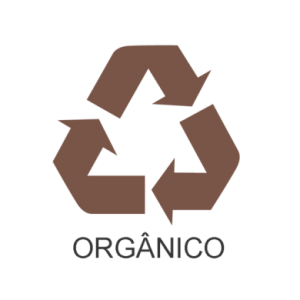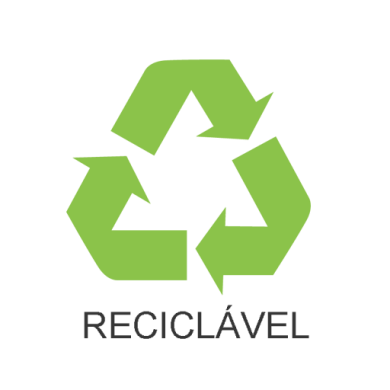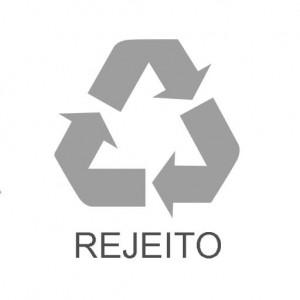Solid Waste Management
What is solid waste management?
To manage solid waste means to adopt a set of effective and systematically actions on the collection stage, transport, transshipment, processing, disposal and environmentally appropriate disposal.
According to the national solid waste policy (Law No. 12.305/2010), waste management should ensure maximum reuse and recycling, and minimization of any waste that do not have technical and economic feasibility for recycling. Each generator is responsible for their own waste, which must be segregated at the source.
Why is it necessary to manage solid waste?
Each Brazilian generated about 1 kilo of waste per day. The total generation of solid waste in Brazil, in a year, is approximately 78.6 million tons (ABRELPE, 2014).
About 31,9% is composed of recyclable materials, such as metals, paper, plastic and glass, 51,4% organic matter and 16,7% of other materials (IBGE, 2010, IPEA, 2012).
However, only 3% of the waste generated is recycled (CEMPRE, 2013). Every day, more than 74 tons of waste is disposed inadequate in dumps or controlled landfills. 3.334 Brazilian municipalities, 59,8% of the total, still dispose waste in inadequate sites (ABRELPE, 2014).
Structural inefficiencies, management and technological deficiencies cause an annual loss of R$8 billion (IPEA, 2012).
To avoid waste of resources and losses is necessary to properly manage the solid waste.
What are the advantages of the solid waste management?
Based on products life cycle analysis and on clean production, manage waste is an opportunity to promote the segregation efficiency, quality and the final materials marketing introduction, to prevent environmental damage and increase public health, reduce waste and costs and to increase profitability, contributing to sustainable development.
The preparation of a PGRS brings many benefits, as how to identify deficiencies, reduce waste and, through an efficient waste collection with the participation of all people related to the waste generation, profit from the sale of the recyclable materials.
Contributes as well to a positive image in front of the customers, partners and the local community, in addition to guarantee the compliance with the legal requirements, minimizing the risk of fines or penalties.
Who is responsible for the solid waste management?
The responsibility for solid waste management is shared between the pubic authorities, the business sector and the whole collective.
Each generator is responsible for the generated waste, either at home or at work.
The generators must minimize the waste generation and promote reuse and recycling, in order to ensure the appropriate environmentally disposal.
The household waste generator responsibility is to separate the waste properly and have a public collection as a requirement of the Solid Waste Agency, transferring the responsibility to the public service management company.
Already defined by the law, activities that generate high quantities of waste by their nature, such as industrial, construction, health. etc., have the responsibility of handling their own residue, and to ensure that the rights management steps occur properly.
Individuals or legal entities defined by the Brazilian Solid Waste Policy (Law No. 12.305/2010) are responsible for the implementation and operation of a solid waste management plan
And if you don’t manage the waste properly, what happens?
Besides losing opportunities, is an environmental crime to cause any pollution of harm to human health, flora and fauna, with the possibility of imprisonment from one to five years “caused by release of solid waste, liquids, gases or debris, oils or oily substances, in accordance with the requirements laid down in laws or regulations” (art. 57, V, Law No. 13.305/2010), in addition to the civil and administrative penalties.
Who “handles, packages, stores, collects, transports, reuse, or give wrong destination to hazardous waste , as those established in law or regulation”, shall be subjected to penalties of one to four years (art. 54, II, Law No. 13.305/2010).
It is totally forbidden to throw solid waste in beaches, sea, water, in open sky and to burn waste.
How Master Ambiental can help in the solid waste management?
With 10 years of experience, Master Ambiental counts with experienced professional to provide guidelines for the proper management of solid waste, with the best cost benefit.
In order to generate positive results for their clients and meet the environmental legislation, Master Ambiental provides services of elaboration and implementation of waste management plans, as well as developing training and monitoring the actions efficiency.
The company has in its portfolio 204 solid waste management plans (PGRS), 98 for commerce and services and 92 for industries, among others.
Master already elaborated 106 plans of construction waste management (PGRCC), 81 for real estate developments, 21 for commercial and services and 4 for infrastructure Works, in addition to 19 health services waste management plans (PGRSS), seven for trade and services, four for hospitals and clinics, two for industries and one for infrastructure.
However, Master Ambiental does not perform environmental services of collection, treatment, transportation or disposal of solid waste, but, advises and prepare technical studies to ensure the appropriate management for other service providers that have an environmental license to do so.
Learn more about waste management plans, also check ours plans!
PGRS – Solid Waste Management Plan
The solid waste management plan (PGRS) is a technical document that identifies the type and generation of each type of waste and specifies the correct environmentally forms for the management, in the steps of generation, packaging, transport, transshipment, processing, recycling and final disposal destination.
PGRCC – Construction Waste Management Plan
The construction waste management plan (PGCC) is a technical document that identifies the generation of each type of waste in a construction work, renovations, repairs, demolition or any excavation, dirty removal and transport.
PGRSS – Health Services Waste Management Plan
The Health Services Waste Management Plan (PGRSS) is a technical document that establishes the management actions for waste handling from all services related to human and animal health care, including home care and field work, laboratories, morgues, forensic services, drug stores and pharmacies, schools and research institutes, zoonosis centers, acupuncture services, tattoo studios and others.
Municipal Plan of Integrated Solid Waste Management
The Municipal Plan of Integrated Solid Waste Management (PMGIRS) consists of a diagnosis about the current situation of the set of waste generated in the municipality and defines guidelines, strategies and goals to be developed.
Implementation of selective waste collection in Municipalities
The national solid waste policy – PNRS (Law No. 12,305/2010) implies a paradigm shift so that Governments and society focus efforts on solid waste management. According to the legislation, primarily the municipalities must include the participation of cooperatives or other forms of Association of reusable and recyclable materials collectors formed by individuals from low-income families.
Landfill projects and design
For environmentally appropriate disposal of solid waste, the landfill is a form of orderly distribution of waste in landfill which observes specific operational standards in order to avoid damage or risks to public health and safety and to minimize adverse environmental impacts.
Composting project
Composting is a form of environmentally appropriate disposal of organic solid waste (leftovers from caves, vegetables, animal waste, etc.), which allows you to use the compost, thanks to biological decomposition by soil microbial action.








